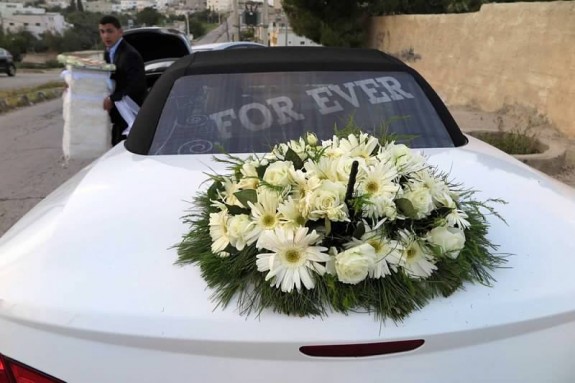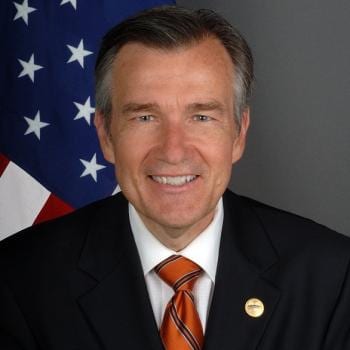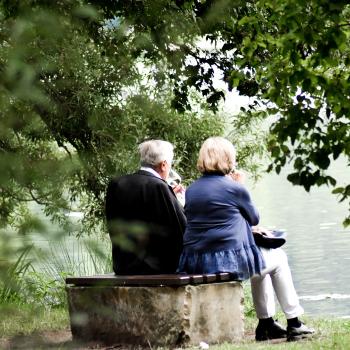Marking her anniversary yesterday (congrats!), Simcha Fisher today calls up some memories of her own nuptials, and points to this very good piece at the USCCB website, which shatters a few popular myths about Roman Catholic weddings:
In some traditions, at the conclusion of the procession into the Church, the presiding minister may ask, “Who gives this woman to be married?” And the father of the bride will be expected to respond that he, or he and his wife, do. At Catholic weddings, it’s presumed that the bride—and the groom for that matter—give themselves to each other.
If you’ve ever seen a wedding on a television series, you’re probably familiar with the dramatic possibilities that arise when the minister asks, “If anyone knows any reason why these two should not be wed, let him speak now, or forever hold his peace.” Well, we Catholics don’t do that. In many places, notices of up-coming weddings are published, allowing anyone with objections to come forward before we get to the altar.
Another touching moment in most TV weddings is the phrase, “With this ring, I thee wed.” For us Catholics, the moment of the marriage is the exchange of consent, and the speaking of the vows. The ring is a symbol of the union that has already taken place. We bless wedding rings, and they are exchanged with the phrase, “Take this ring as a sign of my love and fidelity, in the name of the Father, and of the Son, and of the Holy Spirit.”
Another thing we don’t say at Catholic weddings is “I now pronounce you man and wife.” We believe that the couple becomes husband and wife not because the minister declares them to be such, but because they have given their consent and made their vows to each other. The function of the priest or deacon is to preside and witness these vows, not to make the marriage happen.
I like the way we celebrate the sacrament at my parish, which helps underscore the “witness” aspect of the presider’s role. The priest or deacon leaves the sanctuary and stands near the altar rail, with his back to the people, looking up at the couple. He then leads the vows, witnessing them with everyone else. It puts the focus on the couple and the words they are saying to each other.
Speaking of the ceremony: Something else that often stumps people—including, sometimes, the person presiding—is That First Kiss. Which is often followed by whoops, hoots and applause. No. No. No. If done according to the rubrics, the entire ceremony takes place without anything like that and, in fact, with a certain aura of solemnity. I like to say at the end, following the final blessing: “Ladies and gentleman, Biff and Heather Newlywed.” Whereupon they smooch, the organ cranks up and the happy couple staggers out of the sanctuary and down the aisle. Cheering is optional—though it usually happens—but by then the actually ceremony is over. Let the games begin.
It’s also worth noting that the much-beloved Unity Candle is not in the ritual and is more or less a modern invention. (A popular urban legend holds that it was first introduced when Luke wed Laura on “General Hospital.” Millions of starry-eyed TV viewers were enchanted and said, “I want that!” I have no idea if that’s true, but it’s a good excuse to ignore it.)
Also worth noting: We continually get requests for weddings at catering halls, on a beach, or in a park. When the priest says “No,” inevitably the bride calls the deacon. Who also says “No.” (I explained why here.) We also strictly limit weddings only to those who live in the parish—which disappoints a lot of brides, who love our long aisle and lofty, cathedral-like atmosphere. (The Rev. George Rutler once remarked that you could tell whether or not a church was a successful piece of art by the number of brides who want to be married there.)
Finally, as an observational footnote—excuse me while I drag out my soap box and clear my throat—is there any good reason why brides are persistently and consistently late for weddings? I can understand traffic tie-ups or natural disasters. But, come on. We run into this problem a lot at my parish. A few weeks ago, we had a 2 p.m. wedding that didn’t start until almost 3, which forced me to delay a 4 p.m. baptism by about 30 minutes. Which almost caused problems for our 5 p.m. Saturday Vigil Mass. (We charge a late fee, but if you’re spending 30k, what’s a couple hundred bucks more? People shrug it off.) This appears to be a universal problem; when I complained about this on Facebook, one reader mentioned a priest who gives the bridal party a ten minute window and if they don’t show up by then, the wedding is cancelled.
I like the way he thinks. Maybe he should have been invited to the Synod on the Family.
Photo: Deacon Greg Kandra

















